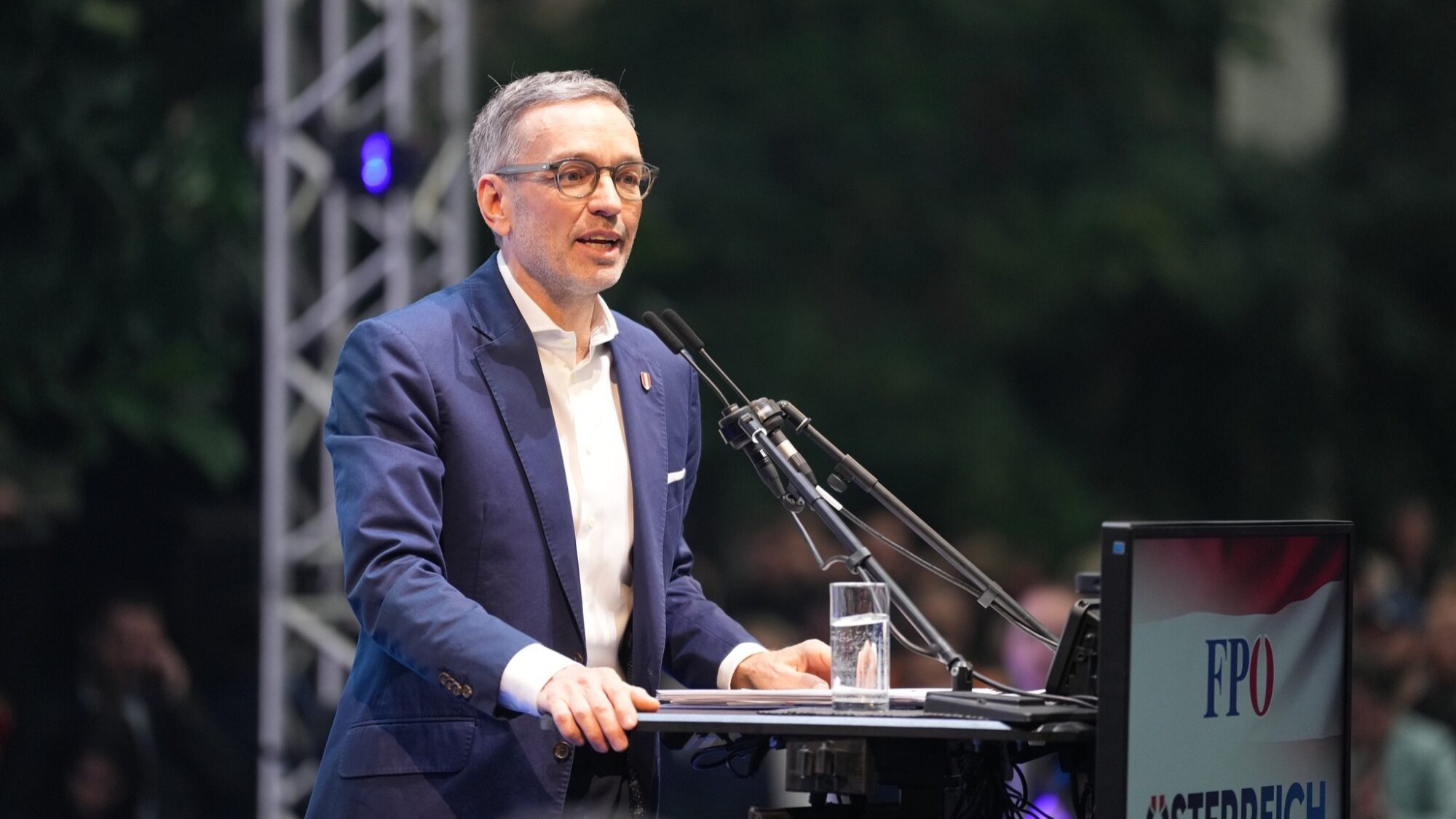
FPÖ leader Herbert Kickl in January 2025
Herbert Kickl / Facebook
While some on the Left may be rooting for the collapse of the talks between the right-wing Freedom Party of Austria (FPÖ) and the centre-right Austrian People’s Party (ÖVP) to form a coalition government, a new election would most likely see an even stronger FPÖ emerge. According to the most recent opinion polls, the FPÖ would hugely improve on its 29% result from September and get 35% of the votes. ÖVP would suffer a significant loss, and drop from 26% to 19%. Second place would go to the Social Democrats with 21%, while the liberal NEOS party would receive 12%, and the Greens 9%.
As daily Österreich writes, even if the rumoured stalemate does not resolve for the time being, negotiations will continue despite deep tensions between the two parties—the main reason being that neither party wants to be blamed for the failure of the talks.
As we reported yesterday, the winner of last September’s elections, the FPÖ, and second-placed ÖVP have been arguing over the distribution of portfolios.
While the FPÖ is willing to hand over a larger share of government offices to their junior partner in the future coalition—seven in total for the ÖVP compared to six for the FPÖ—the Freedom Party insists on having control over the most important ministries, including the finance and interior ministry. FPÖ leader Herbert Kickl also wants the chancellery to be in charge of constitutional and EU affairs and the media.
As Kickl pointed out in a Facebook post on Wednesday, February 5th, it is crucial that his party takes over control of the finance ministry, because the previous cabinet—consisting of the ÖVP and the Greens—was responsible for accumulating “billions in debt.”
He stressed that the interior ministry was just as important so that his party can finally get the chance to implement “a change of course in security policy and asylum policy.” He added that it is time for the population of Austria to be protected, “not the illegal intruders.”
The ÖVP, on the other hand, reiterated its stance that it is unwilling to give up its three red lines: Austria’s sovereignty against foreign influence, the country’s constructive role in the EU, and the preservation of “our liberal democracy and our rule of law.” Whatever these lofty statements mean, it is obvious that they serve to justify the ÖVP’s stance on the distribution of government departments.
The ÖVP would be willing to hand over the finance ministry to the Freedom Party, but handing over control of EU affairs is something they are reluctant to budge on.
Being in charge of EU affairs is a priority for the Eurosceptic-sovereignist FPÖ as it disagrees with the current course of the European Union and the handing over of national competencies to EU institutions.
Herbert Kickl met the country’s president, Alexander Van der Bellen, on Thursday, February 6th to report to him about the status of the coalition negotiations, but did not talk to the press on his way out of the Hofburg, the presidential palace.
The two parties have been holding talks for almost a month following the collapse of negotiations to form a three-way government between the ÖVP, the left-wing Social Democrats, and the liberal NEOS party. FPÖ and ÖVP were quick to agree on budgetary issues, as well as on toughening asylum laws to stop illegal immigration into the country. If the talks fail, the country could be headed towards a new election sometime in May.
